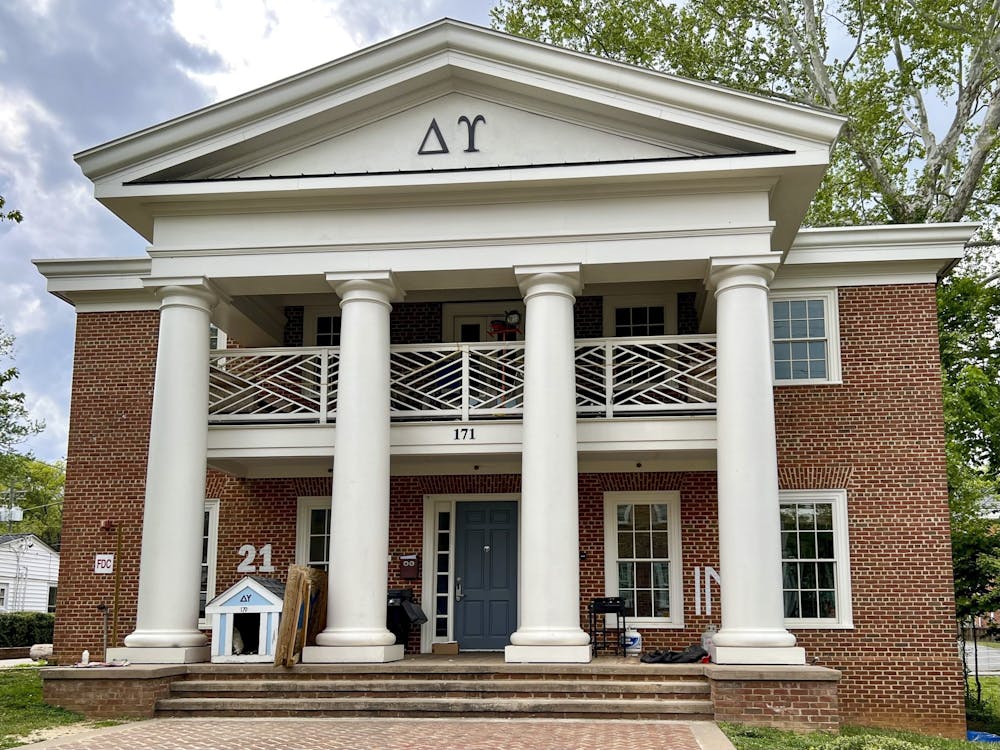This is a developing story.
Both Chi Phi and Delta Upsilon have faced temporary suspensions while the University conducts investigations over hazing allegations. Delta Upsilon’s suspension was lifted Monday — Chi Phi is still suspended as the University continues its investigation into the chapter. The exact timelines of the investigations are fluid, but the University’s final verdict will determine whether either group faces sanctioning.
The Office of Fraternity and Sorority Life informed the Inter-Fraternity Council of Delta Upsilon’s interim suspension April 18, and then of Chi Phi’s April 20.
Mark Graff, fourth-year College student and president of Delta Upsilon, declined to provide a comment. Will Eiben, third-year College student and president of Chi Phi, said the chapter is aware of the allegations and is “fully cooperating” with the University’s investigations.
Joseph Kratz, IFC president and third-year College student, said investigations are not an indication of guilt and both chapters are actively cooperating with the process in an email statement to The Cavalier Daily.
“We are confident that DU and Chi Phi's active engagement and cooperation is indicative of the IFC more broadly, and they are excellent examples of how chapters can be responsible members of the University community,” Kratz said. “The IFC is also optimistic that this process will help the University and our leadership refine and improve anti-hazing responses.”
University spokesperson Brian Coy confirmed the suspensions and said findings are still in progress.
“We take allegations of hazing seriously and we act quickly to investigate them and take disciplinary action if necessary,” Coy said in an email to the Cavalier Daily.
Hazing is against University policy and Virginia law. Adam’s Law, which took effect over the summer, mandates anti-hazing training for students participating in organizations with new-member processes and also requires that institutions provide a public report of hazing violations.
After an initial report has been filed by the Office of the Dean of Students, an evaluation panel — made up of staff from Student Affairs, FSL, Student Engagement, the Equal Opportunity and Civil Rights Office and University Police Department — will meet to assess University action. If the report is actionable, two investigators will interview relevant parties and gather information in a thirty day time frame. Investigations can return findings of no hazing, hazing and severe or persistent hazing.
Severe hazing or hazing that threatens student health or safety may result in suspension or termination of the chapter’s agreement with the University. Otherwise, the dean will refer the organization to UJC for adjudication. Last spring, UJC found five fraternities affiliated with the IFC guilty of hazing violations. Sanctions ranged from suspensions to social probations.
This fall, Phi Gamma Delta — commonly referred to as FIJI — and Kappa Alpha had their Fraternal Organization Agreements terminated after hazing investigations. Neither group can apply for a new FOA until spring 2026.
The outcome of the University’s investigation into Chi Phi and Delta Upsilon remains to be determined.







